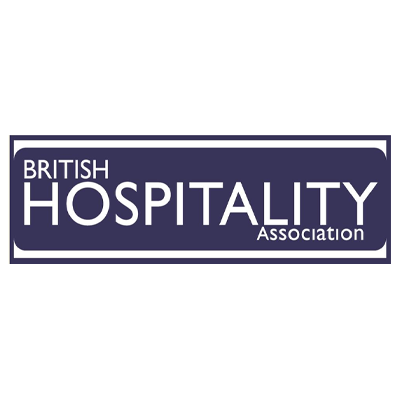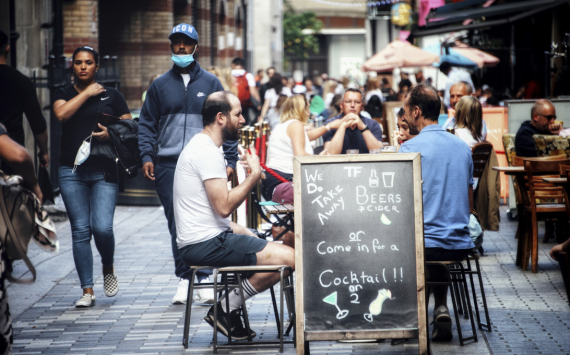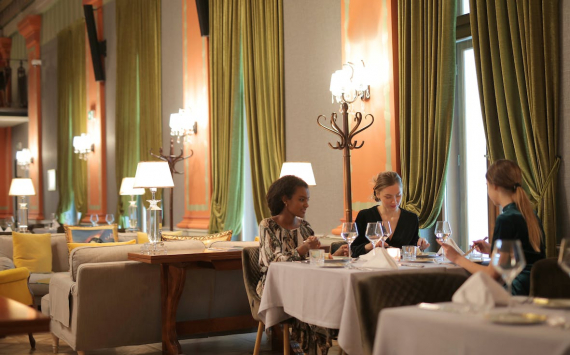Description
The British Hospitality Association (BHA), incorporating The Restaurant Association (RA), was a non-government representative body for hotels, clubs, restaurants, leisure outlets and other hospitality-related organisations nationwide headquartered in London, UK. In 2019 it merged with the Association of Licensed Multiple Retailers (ALMR) to form UKHospitality. The association promotes the interests of the hospitality industry to the Government Ministers, Members of Parliament (MPs), Members of the Scottish Parliament (MSPs), Welsh Assembly Members, MEPs, the EU Commission, the City and the Media. The association operates by membership-based system.
History
BHA traces its origins back to 1885 when James Allen, of the Queen’s Hotel in Leeds, tried to establish the first association for supporting and representing the hotel industry in England. In 1891/2, the Caterer magazine took the similar attempt. However, those tries remained unsuccessful due to lack of support and interest.
In 1906, one of the main promises of the Liberal Party at the elections was to reduce drunkenness primarily by abolishing one-third of the liquor licenses in the UK. Moreover, it was proposed that the profits lost by the one-third of the licensees whose businesses were closed down would be recovered as a compensation levy from the remained two-thirds who survived. When the Liberal Party won the election with majority of 300 seats in the House of Commons, the industry faced a major disaster.
Frank Bourne-Newton, the editor, publisher and proprietor of Caterer, Hotelkeeper and Refreshment Contractors’ Gazette (now Caterer and Hotelkeeper), joined together with Dudley James, manager of Morley's Hotel in Trafalgar Square (replaced by South Africa House) to form a national association which would lobby the hospitality industry’s interests and defend it against attacks on existing conditions. As a result, they established National Hotel-Keepers Association in 1907, which by the end of the year was granted its certificate by the government as Incorporated Hotel-Keepers Association (IHKA). Out of thirty-six founder members, five hotels are still members of the BHA; nine are still in business (though, not always as hotels); and the remaining twenty-two have been demolished, redeveloped or destroyed during the World War II.
The first task to undertake for the newly formed organisation was to make the Government reconsider its plans regarding the new Licensing Act. IHKA lobbied the Chancellor of the Exchequer, Herbert Asquitch, and achieved some success as the Government agreed to reduce the compensation levy for hotels to one-third that applied to the public houses. The bill was, however, vetoed by the House of Lords but eventually re-introduced years later when the upper house could no longer block it due to its reformation by The Parliament Act 1911.
From its founding to 1910, IHKA had a number of other achievements. The association fought licensing duties and tried to lobby a reduced insurance premium for members affected by the Employers’ Liability Act. It ensured that the Shops Act 1911 did not affect hotels; which would have reduced the working hours to no more than twelve a day, five days a week and fourteen hours on Saturdays.
Some years later, the founders realised that the IHKA could not run any longer because it did not have sufficient funds to fight long battles with the Government. In 1910, IHKA merged with Incorporated Association of Hotels and Restaurants (IAHR), recently formed by major hoteliers, and adopted its name.
During the First World War, hotels, along with many others, were affected by the food shortage. The IAHR was the first to recommend rationing to the Government. It also raised concerns regarding enormous number of forms had to be filled by the hotels to account for the food that they used.
By the end of the World War I, the IAHR formed a parliamentary committee and the Government recognised it as the negotiating body for the industry. Once the war was over, the Chancellor of the Exchequer, Sir Austen Chamberlain, decided to introduce a new tax for luxury goods to raise money and included hotels into such category. The IAHR managed to persuade Sir Austen to drop this plan at the Committee stage. In the mid-1920s, IAHR introduced its regional divisions to provide all members with more control of the specific efforts needed in their areas.
In 1926, association decided to change its name again and became the Hotel & Restaurant Association of Great Britain (HRA). In 1948 it combined with the Residential Hotel Association (founded 1918) to form the British Hotels and Restaurants Association (BHRA).
When Prince George, Duke of Kent gave a toast at the 22nd Annual Luncheon, HRH commented the association's work by saying that "The hotel industry is important as a dispenser of happiness. With resolution on your part to provide the service required, there is no reason why the hotel trade in Great Britain should not enter into a new era of prosperity".
The bombing of the Second World War had a serious effect on the hotel industry as many hotels were destroyed. It includes some notable names such as the Carlton (now New Zealand House). The association and the industry struggled but when the war was over, HRA worked hard to obtain a fair share of the building materials for refurbishments.
In the early 1970s, HRA merged with the Caterer’s Association and was renamed as British Hotels, Restaurants and Caterers’ Association (BHRCA). In a few years, BHRCA claimed to represent over half of the hotels with 5+ bedrooms across the UK. In the late 1980s, the association changed its name to its present form, the British Hospitality Association (designed by Saatchi and Saatchi), to make it shorter, be modern and reflect the wider industry it represents.
Other successful campaigns include fighting a proposal by the EU to prevent business travellers from claiming VAT back and a proposal that hotels must pay more for television licences. At present, the BHA represents 40,000 establishments with over 500,000 employees across the UK (excluding NI); which includes hotels, restaurants, clubs, catering companies, food & service management and leisure outlets. Members range from independent businesses (73% of total number of members) to international groups (8%).
One of the main agendas for the association in 2011 is a campaign to reduce the level of VAT charged to hotel rooms and attractions to increase competitiveness of the UK hospitality against other EU members which mostly charge a lower VAT rate for accommodation and food served in restaurants.
Restaurant Association
In 1967, a group of restaurateurs led by Rafael Calzada, proprietor of the Caprice, supported by Madame Prunier, proprietor of the Prunier’s Restaurant (now Marco Pierre White’s Luciano) and Manny Franks, who ran a small restaurant chain, claimed that BHRA (as it then was) ignored restaurants and decided to establish a new separate organisation, called the Restaurant Association of Great Britain (RAGB), which would represent solely restaurants interests. For nearly forty years, RAGB continued to represent the industry. However, due to the lack of support from major food chains, high costs and the need to present a united front, the RAGB had to merge with the BHA in 2003.























